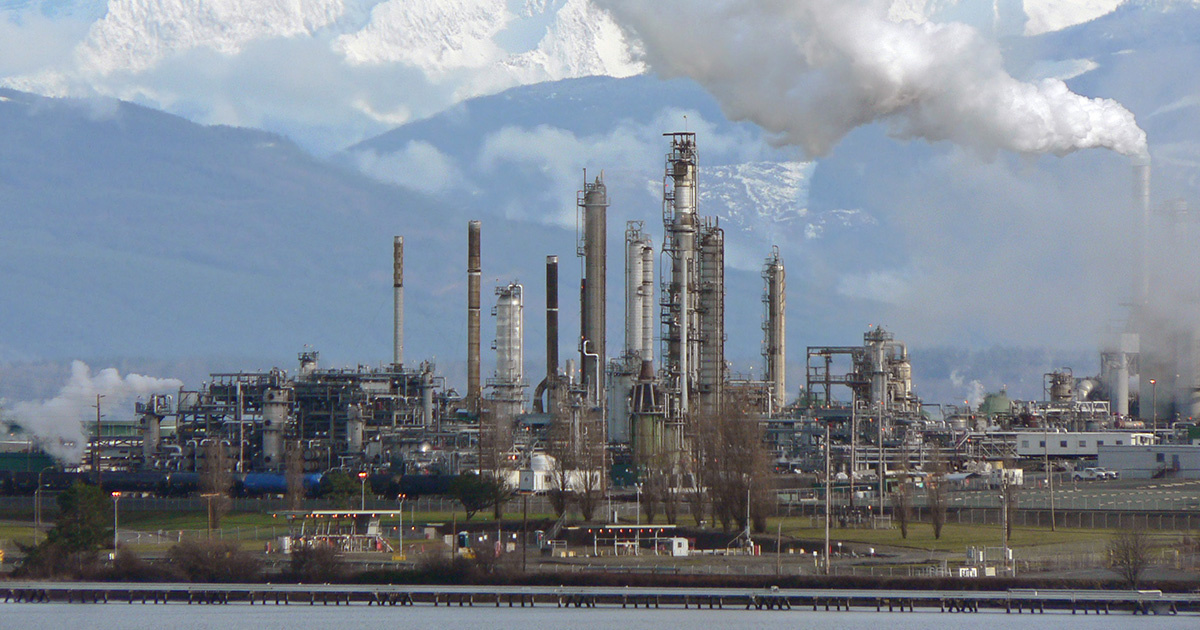
Big Oil Pours Record $30M to Sway Voters Against Nation’s First Carbon Tax

If voters approve Initiative 1631 on Nov. 6, Washington state will take a significant step in climate action by becoming the first state in the nation to enact a fee on carbon emissions. That is, unless Big Oil can stop it.
The U.S. oil industry has pumped a record $30 million to stop the carbon tax, which environmentalists have tried to enact for years, Reuters reported, citing state data. Meanwhile, proponents—including green groups and climate activist billionaires Bill Gates, Michael Bloomberg, Tom Steyer and Laurene Powell Jobs, the widow of Apple founder Steve Jobs—have spent $15.2 million.
“With Big Oil spending $30 million, that makes it a real fight,” Bill Holland, state policy director for the League of Conservation Voters, told Reuters. “It has been a frightening amount of money.”
Washington ranks fifth in the nation in crude oil refining capacity for making gasoline and other petroleum products, according to the U.S. Energy Information Administration.
Initiative 1631 imposes a starting fee of $15 per metric ton on carbon emissions, beginning in 2020. This fee rises $2 every year until the state hits its 2035 emissions reductions goals and is on track to meet its 2050 goals. If passed, the tax is expected to generate $2.3 billion in revenue for green infrastructure, clean transportation and help communities most impacted by pollution.
A recent statewide Crosscut/Elway Poll among registered voters shows 50 percent approval of the measure, 36 percent opposed and 14 percent undecided.
This.? Big Oil is spending big ? fighting Washington's historic I-1631—which would price carbon & use the funds for jobs & justice. It's now the most expensive campaign in state HISTORY.
But people power > dirty dollars every time. Follow @Yeson1631 to plug in. #YesOn1631 https://t.co/giEWYHkjZd
— 350 dot org (@350) October 25, 2018
The opposition is led by the Western States Petroleum Association, a trade organization that has raised $31.2 million from energy companies and business groups for the “No on 1631” campaign—the most money ever spent in Washington state history to defeat a ballot initiative.
BP America contributed the most with $11.5 million, followed by $7.2 million from Phillips 66 and Andeavor with $4.4 million, Reuters said. The three energy companies have refineries in the state. American Fuel & Petrochemical Manufacturers and Valero Energy Corporation also donated funds.
The money has been spent on digital ads, flyers, mailers and television ads aired during this month’s Major League Baseball World Series. Opponents say the tax will “be paid by Washington families and small businesses.”
A Spanish-language flyer mailed by the No on 1631 campaign urges voters to “join our coalition and more than a hundred Latino owned businesses.” But some business owners say they did not expect their enterprises to be listed on the flyers. https://t.co/64AAsP2sVf
— The Seattle Times (@seattletimes) October 31, 2018

 233k
233k  41k
41k  Subscribe
Subscribe 